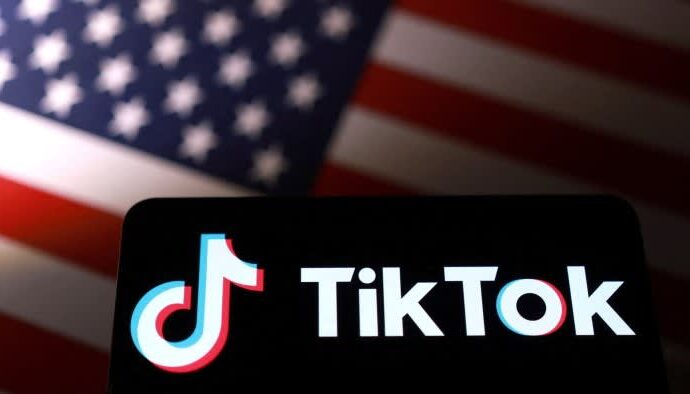On a recent weekday, the Beijing office of the company behind Manus, a popular artificial intelligence “agent”, was quiet. Most desks were empty. Its Chinese social media presence had been wiped clean.
Manus’s abrupt exit from China for Singapore came on the heels of a major US financing deal and marks a sharp reversal for the start-up, which just months ago was hailed as the next DeepSeek — further proof that China’s AI innovation matched Silicon Valley.
The multimillion-dollar investment deal led by top-tier US venture firm Benchmark and the Manus departure have sparked controversy and criticism on both sides of the Pacific. In China, the team behind Manus have been labelled “defectors” by some online media outlets and criticised for laying off local staff and shifting hiring to Singapore.
In the US, Benchmark and its partners have come under fire, with China hawks in the national security establishment contending the deal flouted new rules banning American groups from investing in Chinese AI. The US Treasury Department is reviewing the transaction, according to two people familiar with the matter.
The outcry underscores how politically fraught China and AI have become in the US, as competition to lead in the technology emerges as another flashpoint between the two superpowers. It leaves investors walking a tightrope of trying to navigate geopolitics while hunting for promising start-ups.
“It used to be that you could build for both China and the world,” said one venture investor in Beijing. “That’s increasingly no longer possible for AI. You have to choose one.”
Manus was a breakout star of China’s AI boom this spring. In March, demand to try Manus, which calls itself a general purpose AI agent, was so high that access codes were being resold for thousands of yuan on Alibaba’s Xianyu ecommerce platform. State broadcaster CCTV featured the product in prime time, praising its ability to “complete tasks step by step, just like a real human team”.
People familiar with the Manus team said they were unprepared for the domestic spotlight, having originally built Manus for the global market.
The app runs on top of Claude, a large language model from US-based Anthropic, which caused compliance issues when operating in China.
The team rushed to start building a second version on China-approved models from Alibaba. “Our two technical teams have started working closely together,” Manus tweeted on its Weibo account on March 11.

Then came the Benchmark-led deal in April. The $75mn investment valued Butterfly Effect, Manus’s parent company, at almost $500mn, a far higher valuation than domestic investors would award it, according to PitchBook. Co-founders Xiao Hong and Zhang Tao visited Silicon Valley and met top tech executives, including Microsoft’s chief executive Satya Nadella.
Criticism of Benchmark began to mount in Washington. It was seen as a first test of new rules designed to curb American investment in Chinese AI that went into effect in January. Rivals such as Founders Fund’s Delian Asparouhov called Benchmark’s partners “assets to China” on X.
“There are a handful of investors who are willing to test the boundaries of decoupling, and testing whether they can still invest,” said a former top US security official. “[But] the signal is that the door will close.”
An investor in Benchmark’s funds said the outcome of the Treasury review remained unclear but a worst-case scenario could require the firm to divest. “They walked into the spotlight — in this fraught environment, it’s surprising.”
Benchmark and the Treasury department declined to comment. A person close to the Trump administration said Benchmark was not welcome in Washington for as long as they were not on “Team America”.
By mid-July, the team behind Manus had dropped plans to launch a Chinese version of the hit app. The growing team in the Chinese capital was mostly laid off, while efforts increased to fill more than 20 new positions in Singapore. The core team will also move to the city state.
Visitors to the Manus website from inside China now encounter a message similar to the one shown by other foreign AI providers: “Manus is not available in your region.” Their social media posts, like the one hailing the Alibaba co-operation, have disappeared.
“We’re not sure what happened with Manus,” said a member of Alibaba’s cloud team. “They just one day decided to go abroad.”
A spokesperson for Manus said it was a business decision to move to Singapore and not one pushed by Benchmark.
The American VC firm has nonetheless taken much of the blame for the debacle in China, with media highlighting a similar Benchmark financing deal for AI start-up HeyGen that abandoned Shenzhen for Los Angeles.
“It’s normal for the general public to be unhappy about what’s happened,” said Li Chengdong, head of Haitun internet think-tank. “But in the industry, our views are more rational — they need computing power and foreign capital. Most AI products in China are free,” he said.
The founders have said little publicly about the decision to move abroad. But last year, Xiao Hong, who is in his early thirties, made it clear why he wanted to build AI software for foreign markets, saying he used basic maths to convince his team.
“I told them the willingness to pay for software is much higher overseas — maybe five times that of Chinese users,” he said on a podcast. “And you can charge in dollars. With the exchange rate at seven, that’s five times seven equals 35. It’s at least a 35-times larger market.”


